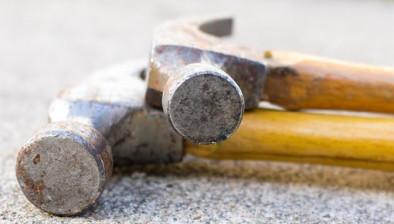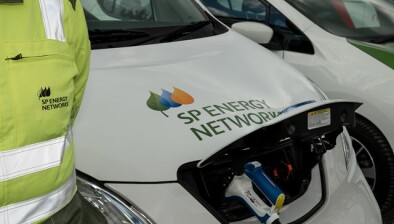First Minister announces fuel poverty and energy efficiency allocation of £54.5m
 Funding of £54.5 million to help tackle fuel poverty and reduce greenhouse gas emissions has been announced by First Minister Nicola Sturgeon.
Funding of £54.5 million to help tackle fuel poverty and reduce greenhouse gas emissions has been announced by First Minister Nicola Sturgeon.
Speaking at the All Energy conference in Glasgow, the First Minister launched the Route Map to an Energy Efficient Scotland, which outlines action to ensure that by 2040, all homes are improved so they achieve an Energy Performance Certificate (EPC) rating of at least Band C.
Supported by £54.5 million funding, the Route Map confirms that landlords of privately rented homes will be required to achieve an Energy Performance Certificate rating of Band E from April 2020 at change of tenancy, and then Band D from 2022. All private rented properties will need to be EPC Band E by end March 2022 and Band D by end March 2025. This is aimed at ensuring private rented tenants live in homes which are warmer and more affordable to heat.
The funding will also support local authorities to expand their existing energy efficiency and fuel poverty programmes. And it will continue to support building owners to develop local heat and energy efficiency strategies as well as making funding available to social landlords to help them install low carbon heating systems such as air and ground source heat pumps.
The First Minister said: “The Scottish Government’s energy efficiency programme will help ensure all our buildings are warmer, greener and more energy efficient.
“The major investment in this programme highlights our clear commitment to ensuring that we tackle fuel poverty and reduce greenhouse gas emissions – helping those on low incomes as well as protecting our environment.”
Councillor Elena Whitman, COSLA community wellbeing spokesperson, said: “The publication of the Energy Efficiency Scotland Route Map is welcomed by Scottish Councils. Our buildings need to be comfortable to work and live in, and heating them should be affordable. The route map will address this and is a priority for council leaders.
“Local Government is ready to work in a constructive partnership with the Scottish Government. We’ve a good record of achievement on area based schemes. We want to deliver the ambitious targets and harness the significant local economic benefits that should result.”
Housing minister Kevin Stewart visited a Scottish Government-funded Area Based Scheme project in Kirkcaldy today following the announcement.
During his visit Mr Stewart was shown around a range of properties at various stages of the external insulation installation process. Outer wall insulation will contribute to homes being warmer and more energy efficient. The Minister also heard about the work being done to engage with householders to successfully deliver the project.
Mr Stewart said: “Our vision is that all buildings across Scotland will be warmer, greener and more efficient by 2040. This deliverable programme is backed by significant funding of £54.5m, underlining our drive and commitment in this important area.
“As part of our ongoing work we will also continue to provide support – advice, grants and low cost loans – to help owners improve the energy efficiency of their homes.”
Scotland’s national fuel poverty charity Energy Action Scotland said it was pleased to see that fuel poverty is a priority for the Scottish Government and look forward to working with ministers and officials to ensure that goals are achieved in advance of 2040.
Energy Action Scotland director, Norman Kerr, said: “We are pleased to see Scottish Government set out its plans to eradicate fuel poverty while making Scotland’s home more energy efficient.
“649 000 households in Scotland are currently living in fuel poverty which is an unacceptably high number of people making a daily choice between heating and eating.
“Fuel poverty is a massive burden to our NHS, leading to delayed discharge and increasing the number of older people attending their GP by 19% for every degree the temperature drops below 5 degrees centigrade. This is unaffordable and unacceptable.
“35% of rural households live in fuel poverty. Across the rest of the country that figure is 31%. These are households unable to afford adequate heat for basic health, unable to afford adequate heat to keep their homes dry, unable to afford adequate heat to cook or refrigerate food, or provide hot water for washing.
“We have an opportunity to save lives, to improve lives for households, young and old alike and we must take it.
“We look forward continuing working in partnership with Scottish Government and engaging with all partners in order to ensure we achieve an end to fuel poverty in Scotland before the target date of 2040.”














